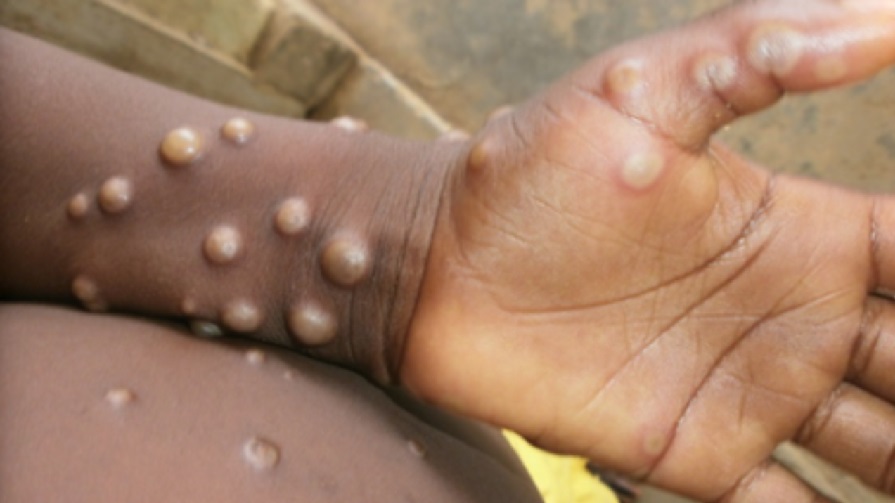Although mpox has been recognized for decades, a new, more lethal and transmissible strain—clade 1b—has emerged, with a mortality rate of approximately 3.6%, according to the WHO. Children are particularly vulnerable to this strain.

Monkeypox
Kinshasa, DR Congo: Mpox cases and deaths are on the rise in the Democratic Republic of Congo (DRC), with the country awaiting vaccine deliveries from the United States and Japan, the health minister announced on Monday.
Health Minister Samuel-Roger Kamba reported that the number of cases has increased over a few days from 16,000 cases and 548 deaths to 16,700 cases and “slightly over 570” deaths. “We are facing a continental emergency,” Kamba stated during a press briefing, as the World Health Organization (WHO) urged affected countries to intensify their vaccination efforts to combat a more lethal strain of the virus.
Last Wednesday, the WHO declared the mpox outbreak in Africa a global public health emergency. Since July, outbreaks have been reported in Burundi, Kenya, Rwanda, and Uganda, with a new strain identified in Sweden.
The United States has pledged 50,000 vaccine doses for the DRC, while Japan agreed on Monday to send 3.5 million doses, “exclusively for children,” according to a medical source speaking anonymously to AFP. The source also mentioned that the DRC “plans to vaccinate four million people, including 3.5 million children.”
“I hope we will see the vaccines arriving by next week,” Kamba said. “Vaccination is the key to solving our problems,” he added, urging the public to get vaccinated. “Our strategic vaccination plan is ready; we’re just waiting for the vaccines to arrive.”
WHO Calls for Vaccination Efforts
Mpox cases have now been reported in all 26 provinces of the DRC, a country with a population of around 100 million people. The WHO has labeled the outbreak as “a public health emergency of international concern,” its highest alert level.
On Monday, the WHO released updated guidelines for combating the surge, including “the agile adaptation of immunization strategies and plans for affected areas.” The organization called on countries to “intensify efforts to thoroughly investigate cases and outbreaks of mpox” to better understand its transmission and prevent its spread “to household members and communities.”
The WHO emphasized the need for weekly reporting of new cases and the identification, monitoring, and support of contacts of infected individuals to prevent further transmission. The guidelines also highlighted the importance of providing food and other support to mpox patients, including, where necessary, isolation in care centers and guidance for home-based care.
The WHO further stressed the need for enhanced “cross-border collaboration” to monitor and manage suspected mpox cases without resorting to unnecessary travel and trade restrictions that could negatively impact local, regional, or national economies.
Although mpox has been known for decades, a new, more deadly, and transmissible strain—clade 1b—has emerged, with a fatality rate of about 3.6%, particularly affecting children, according to the WHO.
Kamba noted that mpox is increasingly affecting younger individuals in the DRC, with many children under 15 years old among those infected.
Since the start of the year, a total of 18,737 suspected or confirmed mpox cases have been reported across Africa, including 1,200 cases in a single week, according to the African Union health agency.
Originally known as monkeypox, the virus was first discovered in 1958 in monkeys kept for research in Denmark, and it was identified in humans in 1970 in what is now the DRC. Mpox is caused by a virus transmitted to humans by infected animals but can also spread from person to person through close physical contact. The disease typically causes fever, muscle aches, and large boil-like skin lesions.












